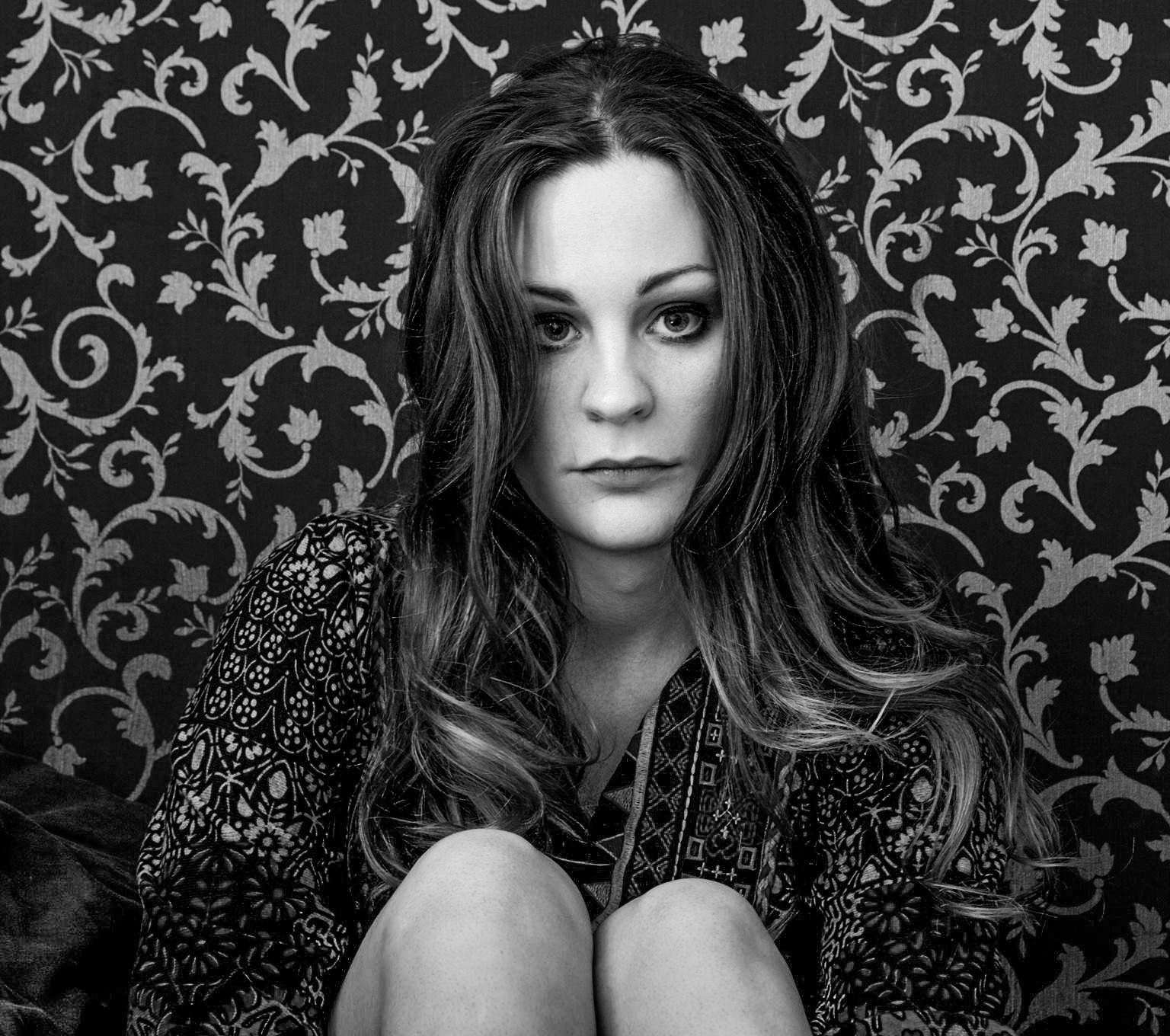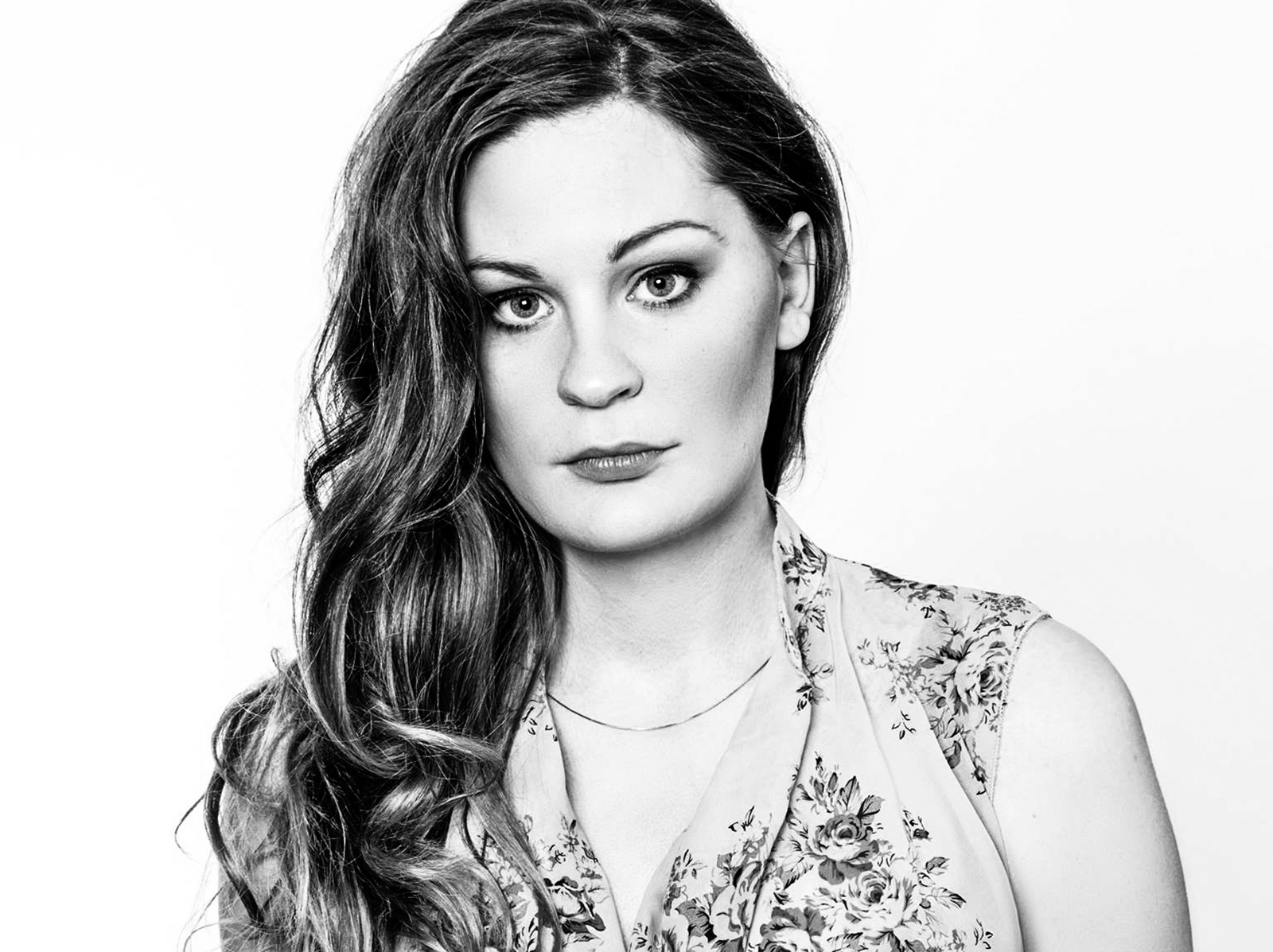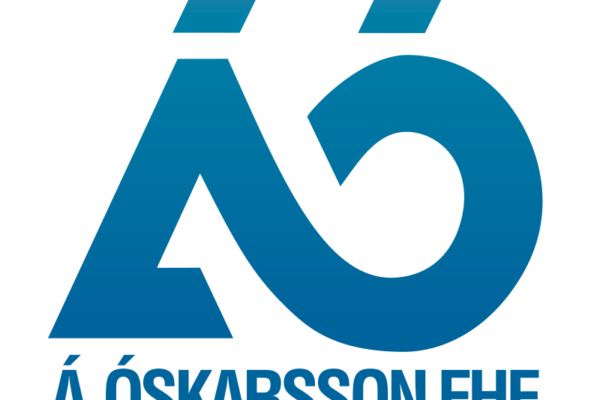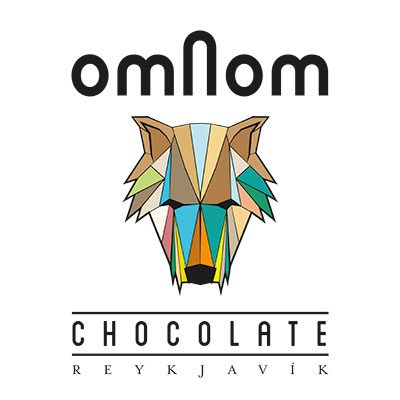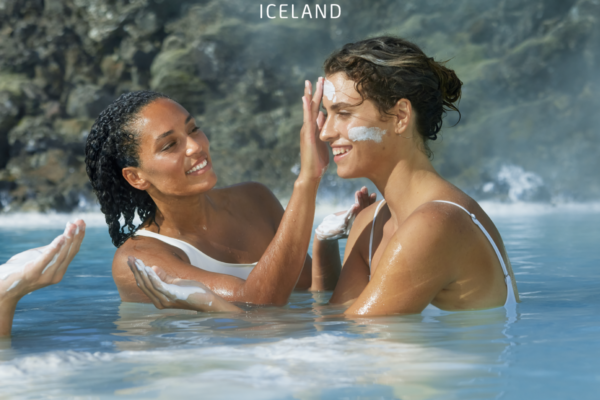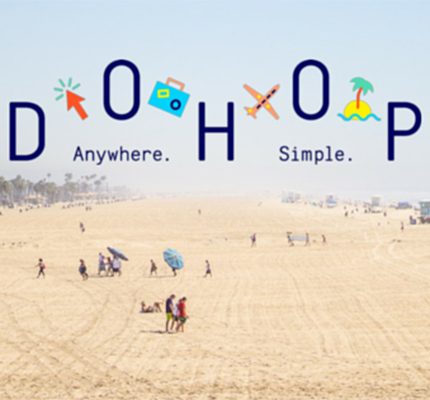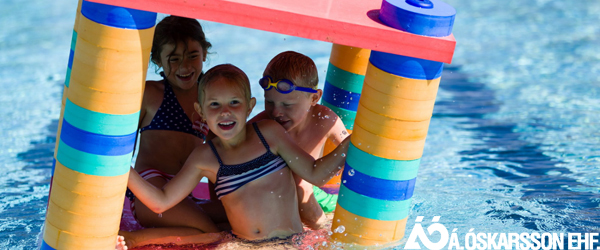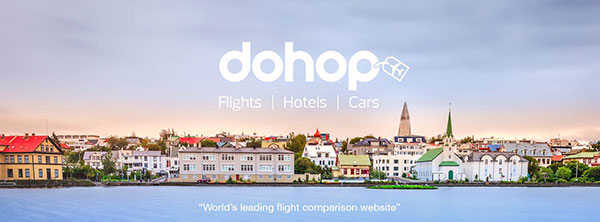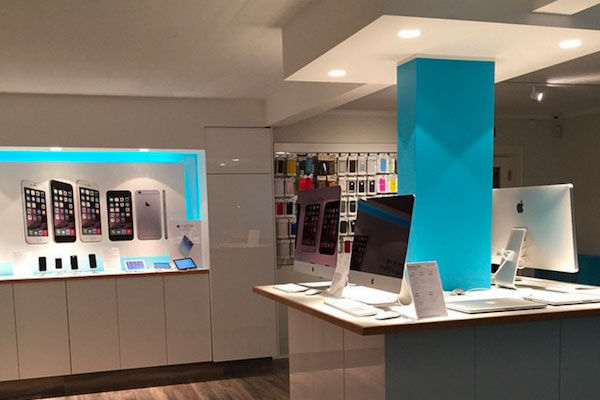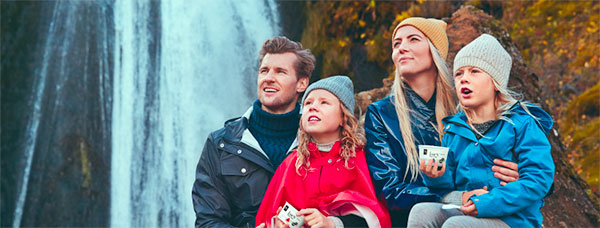If the Icelandic trans rights movement of the past few years has a mastermind, it just might be Ugla Stefanía. The 25 year-old Icelandic-born activist has helped shift the mainstream’s idea of the gender binary and has been fearless in discussing their personal experiences with people from all over the world, including a sold out audience at TED Reykjavik back in June.
Now an accomplished writer for the Huffington Post, Ugla’s articles have generated a wide variety of opinions: mostly positive but some hateful, which exposed them to the brutal realities of cyber bullying and hate crimes. Having relocated to Brighton in the UK, Ugla is spreading their wings, sewing new projects into their colourful quilt of activism. They are a fighter of many causes and for us at GayIceland, it was a conversation that was long overdue.
As Ugla answers my Skype, I can’t help but ask the question, “How ARE you?” Between travelling non-stop, preparing speeches for various events and dealing with the internet monster of hate, you’d wonder how they’ve been coping with this newfound exposure, having become a Huffington Post regular. “I’m good. If you’re talking about the criticism I’ve received, as sad as it is, I’m used to it because I’ve been an activist for a long time and have some very strong opinions about certain things. I’m used to people disagreeing with my point of view but it’s never been on such a massive scale. Especially the article that I posted on Huff Post back in the summer called “Non-Binary and Relationships: What Do I Call You?” (an article discussing the correct pronouns to use for a significant other in a non binary relationship). I was surprised at how much hate I received from strangers on the internet. It had over 700 pages of comments, mostly negative. But I’m okay, it’s not something that affects me that much, especially since those comments are no longer part of a discussion, it’s just hate. When people want to have a legitimate conversation or talk about their opinions, that’s a different thing. I can’t control their online behaviour, so I can’t take it personal.”
It’d be difficult to place “trans rights” under one umbrella, as each individual’s experience will vary from the other. For Ugla, it’s about educating their readers on the everyday trials of their own life as a non-binary queer feminist. They grew up on a farm close to Akureyri and Blönduós, in North Iceland. “Growing up on a farm was a great experience. I feel quite fortunate to have grown up the way I did. That being said, I didn’t know a single thing about trans issues growing up and I never talked about it or explored it until I moved to Akureyri at 16.” And at that moment, Ugla’s life changed forever. “Education was the starting point of my activism. I never planned to become an activist, as I simply wanted to go through my transition and do my own thing but over time, it fell into my lap. In the beginning, I joined a queer group in Akureyri and since I was the only openly trans person, they asked me to do lectures. Finally, upon moving to Reykjavik in 2011, I joined the Queer Student Association of Iceland and that’s when the ball started rolling.”
While it’s never easy to come out and be vulnerable, Ugla broke the ice (punny, I know). Their transparency as an activist gave other Icelanders the ability to ask them questions openly, which sometimes steered into intrusive territory. “It depends a lot on where I am and what role I’m playing. Usually if I’m asked personal questions, I’m in the role of an educator so I don’t mind taking them on, as long as I mention that it might not be an appropriate question to ask in every situation. For example, I would say: ‘Instead of asking me about my genitals, maybe we can talk about discrimination’ or something that actually matters. Sometimes I’ll be at a party and someone will ask about my genitals, in which I ask ‘Are you going to pay me? Because this is what I do professionally. If you don’t pay me, you won’t get the answer.” They laugh playfully, emitting a vibe of confidence in their ability to stare ignorance in the eyes.
“I’m used to people disagreeing with my point of view but it’s never been on such a massive scale … I was surprised at how much hate I received from strangers on the internet. It had over 700 pages of comments, mostly negative. But I’m okay, it’s not something that affects me that much.”
From a fragile heart to one made of steel, its fascinating to learn about Ugla’s past, the early days of their transition. “What surprised me the most was that I subconsciously predicted how people would react to my transition, which was often different from what I had imagined. For example, I had no idea how to tell my 10 year-old brother that I was trans. I kept thinking: “He’s 10, how could he possibly understand?” I started by telling him about the term “trans” and explained what it meant. A few days later, I got really nervous to tell him but while we were playing a video game, I paused the game and went for it. I asked him if he remembered the conversation we had about the word “transgender”. He nodded his head and finally, I told him that I was trans and that I would be changing my name and doing some things differently. He gave me a reassuring, yet almost annoyed look, and asked “Ok, cool. But can we keep playing the video game?” He didn’t think it was a big deal at all and that surprised me.”
What is considered “no biggie” for a sibling, however, can be very different for a parent. “For my parents it was a much bigger deal because when you raise someone for 18 years, it’s hard to break the news that there’s been a huge misunderstanding. It wasn’t easy for them. Looking back, I really wasn’t ready for what was about to come because you can never be prepared for something like this. I remember being at school a few weeks after I came out, thinking that everyone was judging me and knew about my situation, when likely nobody was paying attention. I never knew how difficult it would be, even just walking down a school hallway. From that point onwards, I became thrusted into the roles of an educator, someone who’s supposed to say something smart and to this day, it still surprises me how fast it all happened. If you had told me years ago that I’d become an activist and educator, I wouldn’t have believed you. This was not the life I had planned.” I guess in Ugla’s case, when life gave them lemons, they made orange juice and everyone continues to wonder how they did it. “It’s been so rewarding. Although it’s been hard, I’m really glad I did it as I have gotten to know so many people from all over the world and feel that I am part of a strong community.”
In 2010, Ugla became the youngest person in Iceland to undergo gender reassignment surgery. At the time, there were no laws surrounding healthcare coverage for the trans community. It fell under the responsibility of one psychiatrist in Iceland to take care of trans people and to deal with the healthcare that they would receive. “The healthcare system in Iceland is usually inclined to put you in a box. You’re forced to play a certain role, to prove to the doctors that you’re either a “girl” or a “boy”. That didn’t really fit my experience because I felt it was a bit more difficult than that. Today, I experience myself as non-binary but at the time, I was worried that it would halt my progress in the health care system. So instead, I decided I would play their game and tell them exactly what they wanted to hear: that I played with dolls, that I was always feminine, that I did girly things. Since I fit into their conventional idea of a girl, it allowed me to go through the healthcare system without hindrance and receive care, as long as I played by their rules. Looking back, it was easy to play up the stereotype but it was ultimately so ridiculous. I had to complete a series of personality tests, IQ tests… was I possibly too stupid to go through with it? What does my IQ have to do with my gender identity?! An IQ test in general is such a bad measurement for anything, especially gender. To make matters worse, all my tests used male pronouns which made me question if anyone fully understood what trans even meant.”
And as if being yourself couldn’t be hard enough in mainstream society, Ugla tells me that trans people are often asked to prove their gender identity to health care professionals, which can quickly become a damaging cycle of oppression and confusion. “I never had moments where I wanted to quit but often wondered why they had to put me through this, why I had to prove to them that I was in fact a woman. I was scared that if I told them how I really felt about certain things, that I would be denied the healthcare that I needed. All doubt aside, I knew I’d go through with it one way or another. When they wanted me to play the part of a “perfect woman”, that’s exactly what I did.”
The trans rights movement in Iceland has grown tremendously over the past five years. There’s been a new wave of support for a number of youth under the age of 10 who have begun transitioning, which Ugla sees as a positive thing for their visibility in the future. “I think it’s a very positive thing that kids can come out much earlier and voice their experiences. When I was young, if I would have had access to the knowledge and education on trans issues that kids have now, I would have come out way earlier. What we’re seeing now isn’t an increase of young trans people, but a more resourceful society that allows kids to have more advanced opportunities. When you’re about 5 and 6, you start to wonder about your gender and who you are. When you hit 10 or 11, it’s just something you feel, something you know and I think it’s wrong for anyone to dispute or tell someone who they don’t know who they are. As well, I think it’s important for young teens to have access to hormone blockers because going through a puberty that doesn’t match how you identify or feel can be an extremely traumatizing thing.”
I stop and reflect on my own highschool days, remembering the sometimes cruel words that would get thrown my way for being an openly gay teen. While it’s a painful thought for most, however, Ugla seems unfazed by the treatment they received in their school hallways. “You fall into a pit of self-hate and self-doubt, along with everything else that comes with being a teenager… it was a difficult time. That being said, I never let that get to me, I just did my own thing.” And despite the traditional ideologies that still exist in our society, it’s people like Ugla who push the envelope for acceptance.
“I think it’s a very positive thing that kids can come out much earlier and voice their experiences. When I was young, if I would have had access to the knowledge and education on trans issues that kids have now, I would have come out way earlier.”
In the past few decades, there has been a strong tendency to genderize colours and objects, especially when it comes to children. Blue is for boys, pink is for girls. For Ugla, this is all too familiar. “I think society is obsessed with defining things in general. We always need to categorize things, to make them seem easier. We want things to be simplified, which becomes dangerous when talking about sex and gender, as they are both very complicated and messy. For most people it’s easier to think that there are only two options of gender, but it’s the people who break the rules that somehow have to deal with the consequences. I don’t understand why everyone is still so obsessed with it. I keep hearing people saying that sex is scientific, but we don’t have that much research on the complexities of gender and sex. I think people should be able to fully label themselves how they want. Their labels don’t affect me. If somebody wants to define themselves as a pansexual aromantic, for example, it still has nothing to do with me. It’s not a matter of opinion, as we shouldn’t form opinions about other people’s identities. It’s about respecting the various identities that exist all over the world.”
Since the summer, Ugla is now spending their time between Reykjavik and Brighton in the UK, where they live with their partner Fox Fisher, a talented artist, filmmaker and activist. Ugla is working on numerous projects that have kept them on their toes. Among these projects, there’s an Icelandic film being produced that is based on Ugla’s life. ““It’s not directly about me, but a story based on my experiences.” It would require a lot of trust to allow a film crew to base a movie off your life. “I’m very excited about it because I fully trust them to do it well. After all, they’re my friends and we keep in good contact.”
With Fox, Ugla has travelled to Malta and numerous places around the UK for the past months to talk about trans rights and to spread their message of equality and love. They’ve even gone as far as to Russia. “Fox was invited by trans rights activists to host a workshop at a festival called Queerfest in St. Petersburg, Russia and I had the opportunity to tag along and see the country for the first time,” says Ugla, who didn’t know what to expect. “There is a lot of talk about Russia in the media, where you often see videos or news of horrible things happening. I was intrigued to know if this was a reality for the people at the organizations there.”
But overall, Ugla felt safe. “Our hosts were very nice and always made sure we were fine. We didn’t need any bodyguards or anything at all, which wouldn’t have been a realistic requirement while being there. Outside the queer community, people in Russia have no idea who we were.”
Coming from small town Iceland, it’s hard to imagine the contrast between both countries. “Compared to Iceland, trans people in Russia are completely invisible both when it comes down to legal and social recognition. They have no rights to health care or no rights against discrimination. The few trans people who actually appear in the media are ridiculed, mis-gendered and stigmatized. They have a completely different situation where they are dependant on one another and rely on each other’s stories to receive support. Being out in Russia as trans is certainly completely different to being trans in Iceland in almost every way.
Through this experience, it put things into perspective. I have been very active in the LGBTQI community in Europe and I come from a safe country for queer people. Being in a country where people don’t have that same freedom has given me a better understanding of my own privilege. It also gave me a lot of hope, because despite everything, the queer community in Russia was still thriving. They are just like us, trying to find a place in the world. They are fighting for their rights and they are amazing at what they do.”
Ugla has accomplished a lot in recent years. Coming from a small rural town in Iceland, who would have thought that they would become such a prominent figure in a fight against human injustice. And perhaps it is Ugla’s warm nature, their ability to address issues in a non-abrasive manner and their passion towards helping others live their truth. And, like Ugla, many activists are working towards a brighter future of universal acceptance. While some might feel that society has fallen behind, we can’t overlook the progress that has allowed the voice of the trans community to be heard. Ugla is optimistic about the years ahead. “In the next two years, I’d love to see more recognition for non-binary people both socially and legally.”

